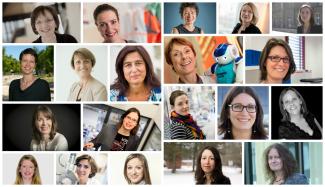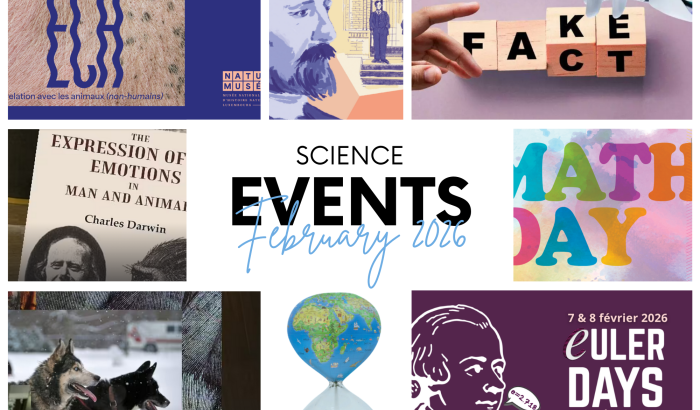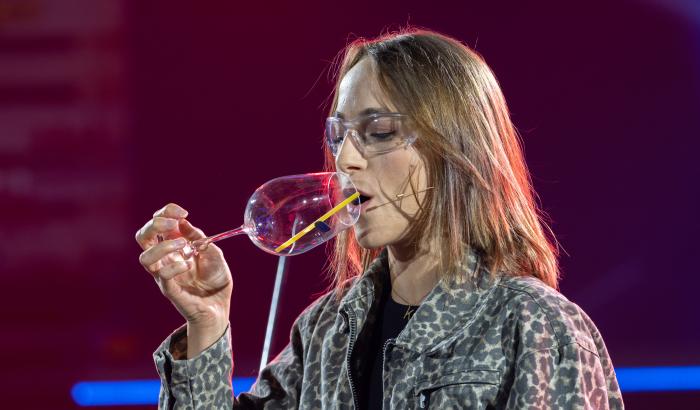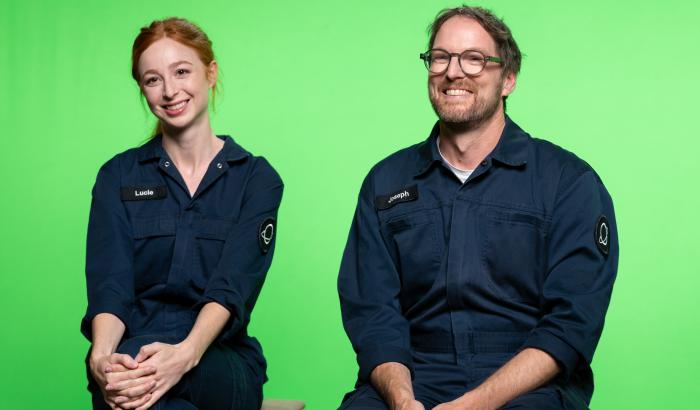
FNR
Luxemburg begrüsst eine Vielfalt an talentierten Wissenschaftlerinnen - aber nicht genug.
What can we do to improve the situation? The WiSE Colloquium in 2017 delivered some recommendations.
Thanks to a persistent political commitment and considerable government investments into the public and private R&D sector,
Luxembourg has the opportunity to welcome a growing number of talented researchers with rich and varied profiles. Yet, Luxembourg
currently suffers from a stark lack of female scientists and engineers, particularly in senior positions. According to Eurostat-Statistics from 2016, only one fourth of researchers and engineers in Luxembourg are women. With that number, Luxembourg is not just below the EU-average (40%) but actually at the very bottom of the list in the EU.
According to the She Figures 2015 of the EU, the situation is particularly bad for the so-called „Grade A“ positions (e.g. Full Professors) and in the business enterprise sector, where only 16% and 11% are women respectively.
These statistics represent an average for researchers, scientists and engineers from all domains, e.g. not just natural sciences or mathematics but also e.g. social sciences and humanities.
Balance in secondary schools?
In high school, the situation appears more balanced at least in the Lycées Classiques: the distribution of girls and boys who choose to
specialize in science and technology subjects in 2015/16 was almost at a par. At closer inspection however, girls have for example a strong preference for biology and natural sciences (Section C) over mathematics (Section B).
In the Lycées Techniques, the situation is different: in 2015/16, only 13% and 28% of girls were registered in science and technology specialisations in the "régime technique” and “technicien” respectively.
What are the key issues that might limit the number of women in science and engineeringe and what can we do about the situation in Luxembourg? These questions were addressed by the WiSE Women Colloquium with around 100 participants from research and engineering as well as research administrators and politicians from Luxembourg.
Main conclusions from the WiSE Colloquium:
- Scientists with children need extra flexibility and support to combine their professional duties with those of a young parent, and maternity with mobility
- Science and society are still too far apart and need to be brought together to inspire everyone. Young girls need more than just male role models. Both science communicators and researchers need to play an active role in inspiring future generations of scientists that are more gender balanced
- We need a cultural change in the Luxembourg society. Parents, teachers, employers, we all need to change our attitude towards the roles of both genders in general to provide an inclusive and fair work environment for all. We need to work towards a knowledge society that makes women and girls feel more at home in science.
A report of the colloquium, which includes comments made by participants and the following set of key recommendations was published by the Fonds National de la Recherche, co-organiser of the event:
- Offer more flexibility to researchers with children
- Promote gender balance in parental leave throughout society
- Develop and promote role models
- Start early (in pre-school)
- Create a gender-sensitive work environment
- Promote and valorise team work
More details in the report available for download via www.fnr.lu.
Three thematic panels
At the colloquium, experts and audience discussed concrete problems and solutions during three thematic panels:
1) How to combine maternity with mobility?
Any woman wanting to combine career with family faces challenges. However, for female researchers - particularly in academia - the time to have children often coincides with the most productive and decisive time in her career. Researchers are continuously judged on their performance, be it for promotions, to receive competitive third-party funding, or a permanent position.
In addition, the researcher’s career usually requires a high degree of mobility. Whether it is working in a different country for at least a year or frequent travel to international conferences and meetings, this is often difficult to organise with young children in tow, and a partner who also works full-time.
2) How to inspire young girls for scientific careers?
In general, girls have more successful school careers than boys. However, in a large majority of OECD countries, among highperforming
students, girls do worse than boys in mathematics and science. Girls also generally have less self-confidence than boys in their ability to solve mathematics or science problems. In the PISA report 2012, Luxembourg was among the countries that displayed the highest gender disparities in mathematics and natural sciences. In some of the top-performing countries and economies in PISA, girls perform on a par with their male counterparts in these subjects as well as in reading ability. These results strongly suggest that gender gaps in school performance are not determined by innate differences in ability. What can Luxembourg do to engage more girls in STEM (science, technology, engineering and mathematics)?
3) How to create an inclusive work environment for all?
Change is happening: today, more and more women enter the workplace, whether it is out of necessity to live a decent life or out of
interest for a particular job. Yet, stereotypes still persist and women often have to fight for positions, recognition and salaries in
comparison to their male colleagues. Academia in particular is still a rather conservative place.
But there is hope, because we have seen change in other domains, e.g. medical doctors and judges. On the other hand, some companies have come up with social innovations that are focused on individual talent and diversity. How can we create an inclusive work environment in the science and technology sector? What does “inclusive” mean?
An great opportunity for Luxembourg
Over the past 15 years, public investments into Luxembourg’s public and private Research and Development sector have increased tenfold.
In addition, the country has a generous parental leave scheme.
Hence, Luxembourg is in a privileged position to become a leader in the promotion of gender balance in the research and engineering sector. To achieve this, it is necessary to implement innovative and forward-thinking solutions, starting at a young age and with a strong focus on role models and inclusive education models.
Luxembourg should not miss this opportunity to grow a gender balanced knowledge society that includes ALL the available talent.
Author: Michèle Weber (FNR)
Photo © FNR (Bilder: VDL, Universität Luxemburg, Nathalie Valle, FNR, LIST, LISER, Christiane Hilger, IBBL, Max Planck Institute Luxembourg)
Infobox
Closing event of an exhibition named "WiSE Women" featuring portraits of a selection of 12 women currently employed in science and engineering in Luxembourg. The portraits were adapted from articles and videos previously published on science.lu, Luxembourg’s website for science and research.
The colloquium took place on 13 February 2017 at the Tramschapp in Luxembourg-City with around 100 participants, including panellists. The audience consisted of a mix of scientists from academia and industry, science communicators and influencers and decision makers from politics and research administration.
The exhibition and colloquium were organised by the Ville de Luxembourg (VDL) in collaboration with the Fondation Jeunes Scientifiques (FJSL) and the Fonds National de la Recherche (FNR).



